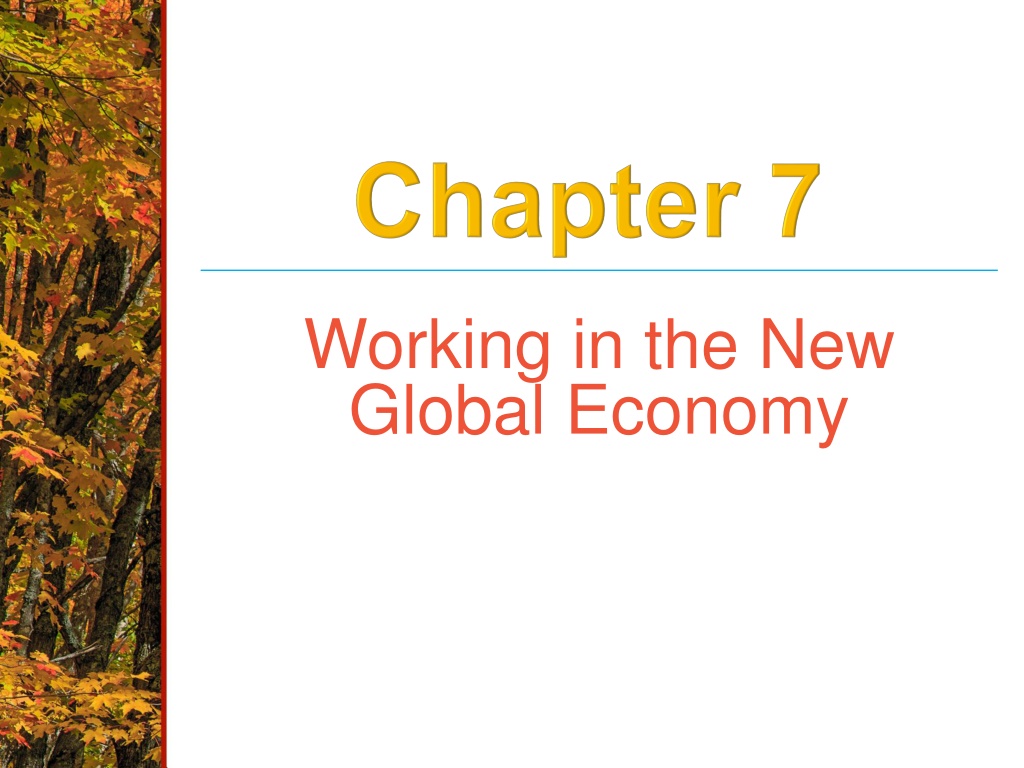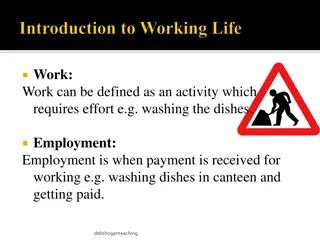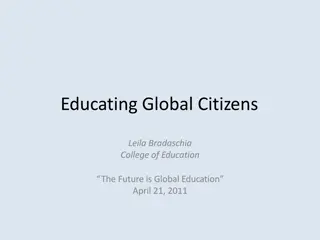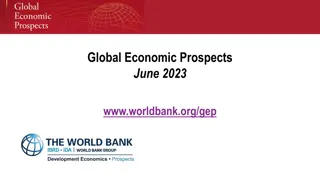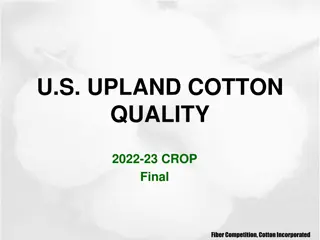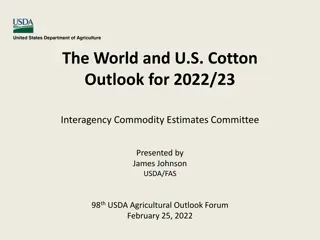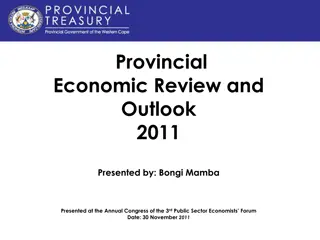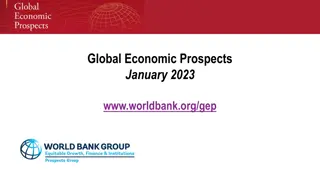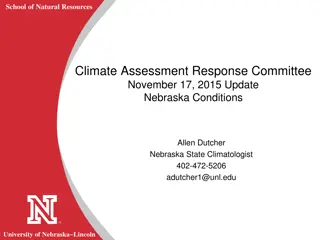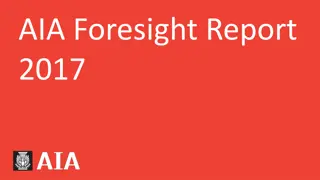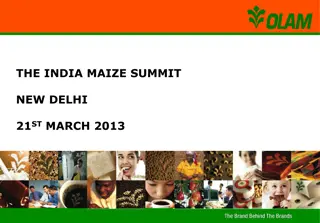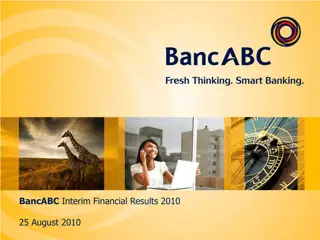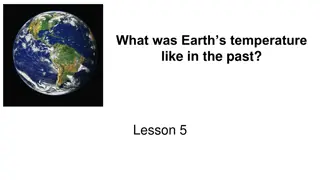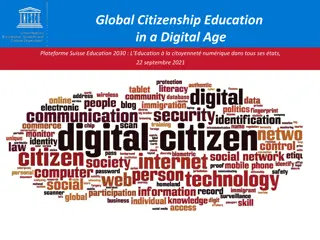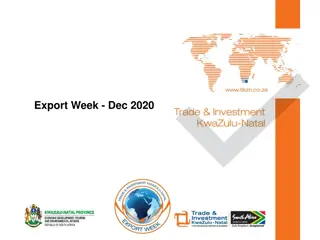Exploring New Global Work Trends and Challenges
Delve into the dynamics of the new global economy, focusing on emerging work trends, such as knowledge workers, global enterprise webs, and precarious work. Understand the impact of technological advancements, like telemedicine and artificial intelligence, on the future of work and learning. Discover how organizations are adapting to a flat world scenario, characterized by a global collaborative environment. Explore the growth of the social economy and the rise of social entrepreneurship.
Download Presentation

Please find below an Image/Link to download the presentation.
The content on the website is provided AS IS for your information and personal use only. It may not be sold, licensed, or shared on other websites without obtaining consent from the author. Download presentation by click this link. If you encounter any issues during the download, it is possible that the publisher has removed the file from their server.
E N D
Presentation Transcript
Working in the New Global Economy
Working in the New Global Economy How will we work and learn globally in the future? Changes in work activity & production U.S. labor markets trends Services industry State labor markets CIP perspective
What do these things have in common? Terrorism Telemedicine Cyber warfare Artificial intelligence Sun belt
Druckers Post-Capitalist Society Knowledge as primary resource Importance of knowledge workers What Holland types are relevant to these changes in society?
Reichs Global Enterprise Webs High value, complex, flexible, global work organizations May involve small groups of workers who quickly identify and solve problems What are some What are some examples of examples of these types of these types of organizations? organizations? Communication may be horizontal rather than vertical Business model is more like a spider web with connecting points across workers
Friedmans Flat World Three earlier periods of globalization Individuals collaborating and competing globally with new software How might this flat world & the next industrial revolution affect your career planning?
Precarious Work Defined as uncertain, unstable, Do you know Do you know Individuals involved Individuals involved in precarious work? in precarious work? and insecure Employees assume risks of employment, receive limited benefits or protections How do you How do you feel about it? feel about it? Implications for organizations and individuals
Rifkins Social Economy Third Sector social economy This sector s rate of growth What are some examples of activities in this sector? Social entrepreneurship
Labor Market Trends Through 2026 How new occupations develop What contributes to the rise in new occupations? Who works? Reasons individuals are not in the laborforce Two views of employment growth numeric vs. percent change what is the difference?
Labor Market Trends Through 2026 Employment trends How can projections affect the forecast outcomes? Factors that can affect forecasts: Natural disasters World political events Changes in government spending New financial support programs Technological inventions New laws
Labor Market Trends Big Growth Occupations (Table 7.1) vs. Fast Growth Occupations (Table 7.2) How do these tables differ? Where would you rather look for jobs?
Labor Market Information Sources Government agencies Federal & state Professional/trade associations Private publishers & system developers Futurist organizations
Federal Government Sources U.S. Department of Labor/Bureau of Labor Statistics Occupational Outlook Handbook Career Outlook Monthly Labor Review
Fast-Growth Occupations Requiring a Bachelor s Degree
Unemployment & Earnings Rates by Education
The Services Industry Significant growth area of the economy Source of many types of jobs from high to low skilled Options for college students within this office economy
State Labor Market Information Impact of geographic location on labor market information How might knowledge of Holland codes inform your understanding of job markets in an area? See examples at: Florida Employment Projections www.careeronestop.org
CIP Perspective & the Labor Economy Self-Knowledge What interests, values, and skills are needed in the emerging economy? Which Holland codes and qualities will be needed in the workplace? What personal qualities/ experiences are likely to be valued?
CIP Perspective & the Global Economy Option Knowledge Nature of new kinds of work organizations? New types of workers (e.g., knowledge workers) Global vs. local changes, impact on options
CIP Perspective & the Global Economy Dynamic Knowledge Dynamic nature of the world economy Ongoing use of the CASVE Cycle
CIP Perspective & the Global Economy Executive Processing Need for career management Complexity of contemporary career life Thinking globally and work locally
